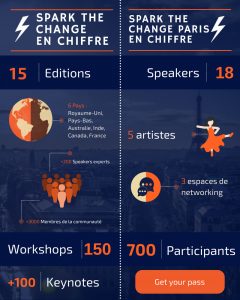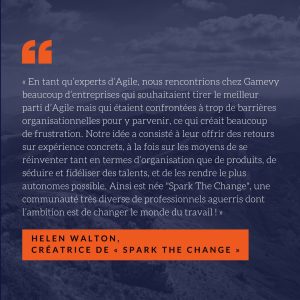Open cultures
If there are many ways to run a closed culture, there are even more ways to run an open one. Each open company tends to have its own way of expressing its culture. However, these are some typical commonalities by which to recognise an open culture:
– Transparency by default: In open cultures, business information is publicly available to all employees. This includes salaries, but also bad news, strategic plans, problems, decisions, ideas, etc. People are trusted to be able to handle that information.
– Flat hierarchy and/or self-management: If everyone knows everything and you’ve hired smart people in the right kinds of jobs, it is very difficult to maintain an arbitrary hierarchy, since everyone can contribute to any decision. When you trust people, it is also unnecessary to set up managers whose job it is to check after them.
– Personal development through work: When there is no career ladder, how do people achieve career progression? The obvious solution is that they take on more responsibilities without having to go “up” an arbitrary ladder. As a natural consequence of that, it is possible for people to fully express themselves in their work, by getting involved in their full range of interests, so they can achieve more personal development than they would in a narrow role with a career ladder.
– Multiple stakeholders, values, and purpose: In open organisations, the idea of valuing profit above all others becomes obviously absurd. It’s not only shareholders, but also employees, suppliers, customers, society, and the environment, which matter. The company does not exist in a vacuum. Values become a way to express what the company cares about, rather just a motivational slogan. Along with the higher purpose of the company, they become the way that decisions get made in open cultures.
– Team or company incentives: There is a progression from the closed culture approach of individual incentives, via team incentives, towards the eventual ideal, which is a system where base pay is determined by a combination of what the person is contributing, what the person needs, and what the company can afford, along with company-wide bonuses. Individual incentives are shunned.
– Self-determined pay: One of the surefire signs of an open culture is when people determine their own pay. In most companies, this is unthinkable. In open cultures, it becomes a natural consequence of all the other stuff. After all, if you trust people to make all sorts of important decisions about the company, why not trust them to make this decision too?
– Separation of role and person: The idea that a person and their role are intrinsically bound becomes visibly stupid as the culture opens up. Eventually, it is clear that people are not their roles, but are capable of engaging in several roles simultaneously, contributing more fully to the organisation’s needs. This further enables people to accomplish themselves and to be fully themselves at work instead of wearing masks. One of the ways this is accomplished is through Open Allocation.
– Trust: Perhaps most important is the fact that open cultures treat employees like adults, trusting them to do the right thing even in complex or ambiguous situations. There are of course processes to help people make better decisions, but the key point is that all these processes start from a perspective of trust and responsibility.
The benefits of running companies this way ought to be obvious, but in case they need to be spelled out:
– People in open cultures are more engaged, happier, more creative, they contribute more, etc. This makes them much more fun to work in, both as a founder and as an employee, but also much more productive – people work much more effectively when they care.
– Having a better environment makes it easier to hire great people.
– Open cultures are way more adaptable to change. Change management is an oxymoron in an open culture: change happens constantly and continually, not through expensive, long-winded, and often failure-prone change processes.
– Because they motivate people so much better, open cultures are, ironically, also better at achieving sustainable, long-term financial results.
There are some examples of open cultures out there, too, to varying degrees.GrantTree, Buffer, Valve and Github, in the startup space, are known examples of open cultures. Others include Semco, Burtzorg, Happy Startup, MorningStar, and many others in all sorts of different contexts and sizes. All companies could adopt an open culture, but most don’t. Why is that?
Reinventing Organisations, by Frederic Laloux, studies a dozen or so open cultures and comes to the conclusion that two things are absolutely prerequisite for an open culture to exist for any length of time: both the CEO/Leader and the owners must be fully supportive of this (currently) unconventional way of operating. Otherwise, eventually the company hits a hard time, and either the CEO or the owners pressure it into returning to a more traditional (i.e. closed) mode of functioning. So the obvious reason why more companies are not currently open is because most CEOs are not prepared to let go of their control mindset, and when they are, the owners (whether private owners or VCs with board seats and a traditional, closed mindset, or simply public markets) frequently won’t let them.
If you’re a founder of a startup, this poses an interesting challenge: are you up to the challenge of creating an open culture in your business? Even when that involves giving up the trappings of power? Even when that involves passing on an investment round from an investor whom you know will force the company to change its ways when it hits a rough patch?
If so, welcome to the club. Follow this blog, and I’ll do my best to share what I’ve learned in transforming GrantTree to be an open company. This is still a new field so we can all learn from each other.







 « Spark the Change » : décrypter et inspirer les bonnes pratiques
« Spark the Change » : décrypter et inspirer les bonnes pratiques 

